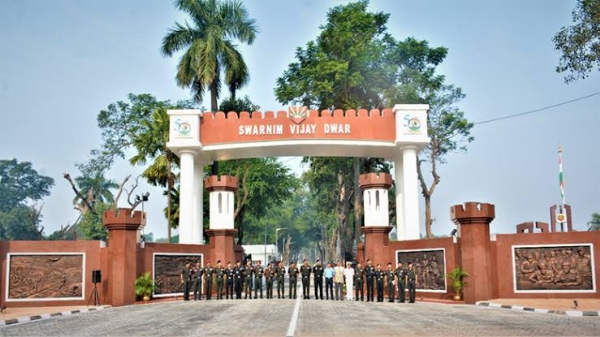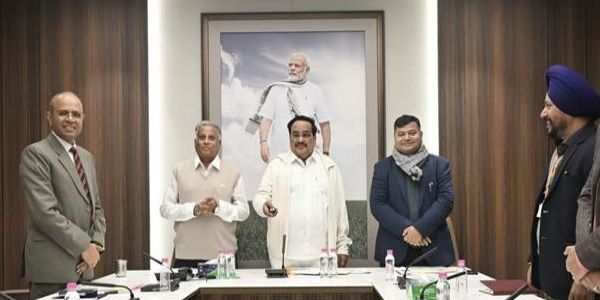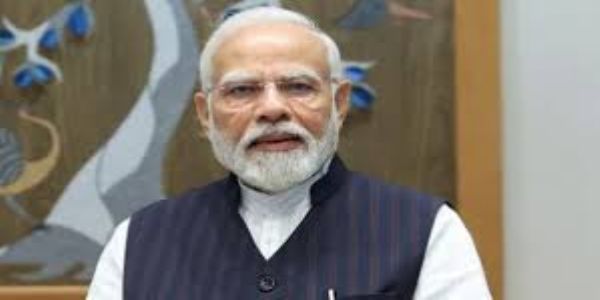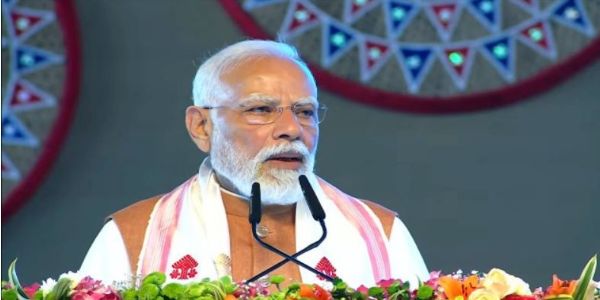
Indian history should be viewed from an Indian perspective, not as remnants of British rule.
Kolkata, 27 February (H.S.) – In a significant move to reclaim India's historical and cultural identity, the government has officially renamed the iconic Fort William, the headquarters of the Indian Army’s Eastern Command in Kolkata, as ‘Vijay Durg.’ This step is part of an ongoing effort to remove colonial legacies and honor India's rich traditions and military valor.
The name ‘Vijay Durg,’ meaning ‘Fort of Victory,’ symbolizes India’s military strength, strategic excellence, and bravery. Fort William has been a crucial military establishment, playing a vital role in the nation's defense preparedness. The renaming not only honors the sacrifices of the Indian Army but also sends a strong message of national strength and resilience.
The word ‘Vijay’ (Victory) holds deep significance in Indian military history, particularly in reference to the 1971 India-Pakistan War. Under the leadership of the Eastern Command, the Indian Army secured a decisive victory that led to the creation of Bangladesh. This historic triumph is commemorated annually as 'Vijay Diwas' in December. The decision to rename Fort William as 'Vijay Durg' directly ties it to this monumental achievement, further embedding the legacy of India’s military prowess.
---
Erasing Colonial Legacies: A Continued Effort
Since independence, India has undertaken numerous initiatives to eliminate colonial-era names and reinstate its indigenous heritage. Fort William was originally built in 1696 by the British and named after England’s King William III. It has long stood as a symbol of British rule.
In recent years, several key locations have been renamed to reflect India’s identity, including:
Calcutta → Kolkata
Rajpath → Kartavya Path
Victoria Terminus → Chhatrapati Shivaji Maharaj Terminus
Allahabad → Prayagraj
Dalhousie Road → Dara Shikoh Road
Andaman and Nicobar Islands → Shri Vijaya Puram
Gurgaon → Gurugram
Kitchener House → Manekshaw House
These changes represent a broader movement to reclaim India’s heritage from the shadows of colonial rule.
---
Strengthening National Identity and Cultural Pride
Renaming Fort William to ‘Vijay Durg’ is more than just a symbolic shift; it is a crucial step toward restoring India’s lost heritage. Many colonial-era names do not represent India's historical and cultural identity. By taking this decision, the government reinforces the spirit of nationalism and asserts that India should take pride in its history, culture, and heroes.
This initiative aligns with campaigns such as ‘Atmanirbhar Bharat’ (Self-Reliant India) and ‘Azadi Ka Amrit Mahotsav’ (Celebration of 75 Years of Independence), which aim to highlight India’s post-independence achievements. The renaming of Fort William ensures that Indian history is viewed through an indigenous lens rather than as a relic of British rule.
---
A Tribute to Military Heritage and Future Readiness
‘Vijay Durg’ holds not only historical significance but also strategic importance in India’s military preparedness. As the headquarters of the Eastern Command, it has been at the center of key military operations, including:
The 1962 India-China War
The 1971 Bangladesh Liberation War
Counter-insurgency operations in Northeast India
Fort William’s contributions to India’s defense strategies have been pivotal. The renaming reinforces India’s military traditions and underscores the nation’s commitment to future defense preparedness.
---
A Bold Step Toward a Proud and Independent Future
Renaming Fort William to ‘Vijay Durg’ is a landmark decision in India’s journey to reclaim its military and cultural legacy. It pays tribute to the bravery of the Indian Army, eliminates colonial imprints, and strengthens the country’s national identity.
With this move, India sends a clear message: its history will now be defined by its own achievements and glorious traditions, rather than by the remnants of British rule. The decision is a significant stride toward cultural independence, military empowerment, and national pride, paving the way for a self-reliant, strong, and dignified future.
Hindusthan Samachar / S P Singh








